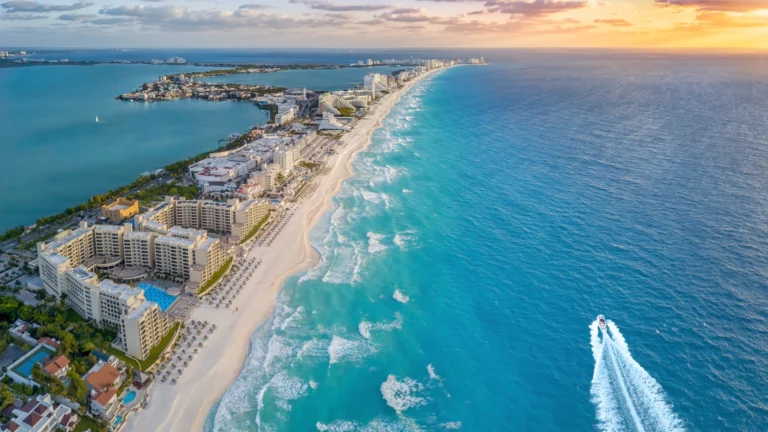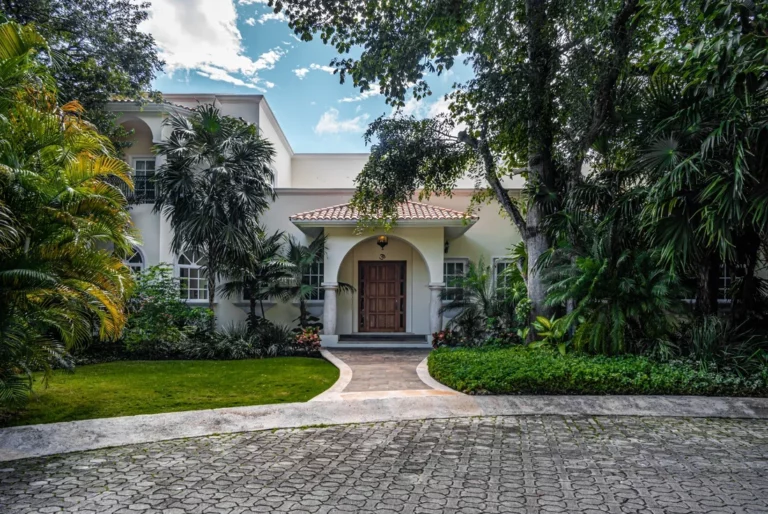This article is a brief summary of the common terms you will see when buying Mexican real estate. Buying property in a foreign country can be daunting, but when you are armed with the right information and have the right people to help you, it can be a smooth process.
Closing Date
The closing date is the most important date in the contract because it’s the day on which the property transaction is finalized:
- The buyer pays their final balance;
- Title to the property is transferred to the buyer;
- The buyer receives keys to the property and can move in; and
- The seller receives their balance of payment. Depending on what’s agreed upon, there may be little or no time between when these happen and when you get your keys. On a standard purchase, it takes about three weeks for all documents to be properly signed and notarized, but some deals are closed in just a few days. At this point, as long as all terms of the contract are met, both parties have no further obligations to each other.
Condominium Regime
The Condominium Act, which applies to all condominiums in Ontario, is a provincial act that regulates condominium corporations. It and the corporation by-laws are enforced by the courts. The Act sets out what a condominium corporation must do when it makes rules, levies special assessments and amends its declaration or by-laws. If you think that your rights under the Condominium Act or your condominium’s governing documents have been violated, you can apply to the court for relief.
Notario Publico
Notario Publico (Notary): A Notary is a government official who regulates the sale and purchase of real estate in Mexico. A Notary must be consulted for any transaction involving the purchase or sale of real property. Only a notary can legally sell real estate in Mexico. A notary is an independent person who is neither an agent of the buyer nor the seller, but rather acts as an impartial overseer who ensures that all necessary government requirements are met and that all relevant records and documents are filed, including payment of taxes.
A notario publico is an attorney who has been appointed to oversee legal transactions, record documents, such as deeds and mortgages, administer oaths and certify documents. In Mexico, only attorneys can be appointed as notarios publicos by the state governor on recommendation of the state legislature.[3] The practice of law in Mexico by foreign lawyers without association with a Mexican firm or without employment at a Mexican company is illegal according to article 53(XVIII) of the Federal Constitution[4], article 26(VI) from the Regulations to Article 73 from the Constitution,[5] articles 19(I), 20(II), 22 & 24 from Law 375/74[6] among other statutes.
Fideicomiso (Trust)
As we’ve already discussed, if you are not a Mexican citizen, you cannot hold title to real estate in Mexico. Instead of owning the property directly, you are buying it through a bank trust known as a fideicomiso. The fideicomiso is administered by a trustee—a Mexican bank that holds the legal title to your property on your behalf. They will charge an annual fee for this service and take care of any maintenance or repairs that need to be made on the property. You must pay taxes on the land and keep up with any homeowner’s association fees or other assessments levied by local municipalities. When your term expires (50 years), you can renew it easily; there is no evidence whatsoever of any foreign buyer ever losing their property because they couldn’t renew their trust term!
The trustee has no rights or access to use the land; they simply manage it for you so that you don’t have to become a Mexican citizen just to own some land here!
Cesión de Derechos
Cesión de Derechos:
- The assignment of rights is the act of taking over an existing fideicomiso rather than creating a new one. It will be dependent on the length of the term remaining on the trust.
Title Insurance
- Title Insurance. This is an insurance policy paid at closing, and it protects the buyer against loss or damage incurred as a result of a defect in a title to the property. It does not protect against unknown defects. Make sure your title insurance policy has no exclusions for taxes and water rights, as this is common in Mexico.
- Title Insurance Protects Against Disputes Over Ownership. The purpose of title insurance is to protect the buyer from adverse claims by third parties on the property after closing, but not known prior to closing due to human error or fraud on official records or documents. For example, if you have just purchased a home and have contractually agreed to record your deed with the registry office that day, however, someone comes along later with a prior recorded deed claiming ownership of your property before you did (and also claiming they had no knowledge that their deed was recorded improperly). In this case, title insurance protects you from losing your investment on the property and will reimburse you should there be any legal fees incurred along the way in defending your claim against said third party.
Registro Publico
Registro Publico: The Registry of Public Documents is the Mexican Government’s official record keeper for property ownership. Within this registry, each property has a unique number that is used to identify it. You will need this number when filing taxes on your Mexico property or when making legal changes or improvements to the land.
Apostille:
An Apostille is required to legalize official documents in Mexico. Apostilles are issued by the Office of the Secretary of State or the Secretary of Foreign Affairs in Mexico that provides authentication of signatures on public documents. The Apostille is a simplified form of legalization and is recognized by many countries, including those that are not signatories to the Hague Convention.
Impuesto Sobre Adquisiciones de Bienes Inmuebles:
The ISAI is a 3% tax on the purchase price of the property that is paid at closing. It’s called “ISAI” for short and is sometimes referred to as the “3% tax.”
If you are buying a resale property, you have to pay this tax. However, if you are buying a new construction property directly from the developer (not from another individual), then the developer pays this tax.
Impuesto Predial:
- Impuesto predial, also called property tax, is an annual tax paid by the owner of Mexican property. This tax is calculated based on the value of the property and is paid to the city government where your property is located. The good news is that you won’t be paying any additional taxes to federal or state governments in Mexico as you do in many other countries.
Factura:
Factura: A document which is issued by the seller, or service provider to the purchaser, which details the date, the items purchased or services rendered, the amount paid, and any applicable taxes.
Clave Única de Registro de Población CURP (Unique Population Registry Code):
Another term you will come across when buying a Mexican property is the Clave Única de Registro de Población CURP (Unique Population Registry Code). It is a secure identification number that identifies Mexican citizens and foreigners who are registered in the national population registry.
This number is required to make any transaction with the government or financial institutions in Mexico, including real estate purchases. The CURP is made up of an 18-character alphanumeric code which includes information such as:
- The first letter of your mother’s first surname.
- The first letter of your father’s first surname.
- The first vowel of your mother’s second surname or “X” if you don’t have one.
- The year, month and day you were born.
- A gender indicator “H” for men and “M” for women followed by two random numbers to prevent duplicates.
RFC Registro Federal de Contribuyentes:
RFC Registro Federal de Contribuyentes is a tax identification number assigned by the Mexican government to individuals and corporations. It is used to identify taxpayers when interacting with the Mexican government.
The RFC number must be obtained before completing any real estate transaction. If you purchase through a corporation, it will receive its own RFC.
Cedula Catastral – Cadastral Certificate:
- This is a document that provides information about the location, dimensions, and value of the property. Usually, this document is required when you are buying a property. On the other hand, it is recommended to obtain this certificate even if you are not planning on buying a property but just want to rent. The reason for this is that establishing the real value of your rental property will help you determine whether or not there is an increase in value over time. Additionally, some residents use the cadastral certificate as proof of ownership when applying for residency in Mexico.
- When you buy land directly from a developer, they can provide you with this certificate as well as registration with Hacienda (Mexican IRS) and Public Registry. However, if you are buying secondary market land or re-sale properties from homeowners, then getting access to these documents may not be so easy.
You should also get a copy of your Hacienda Registration Certificate (Hacienda Certificado de Registro) because it proves that the seller has paid his taxes on time and can prove his ownership claim over their property such as any liens placed against it or when taxes were first due each year under Mexican law which varies depending upon how long ago they purchased their home etc…
Earnest Money:
A deposit made to a seller indicating the buyer’s good faith in a transaction. Also called a “good faith deposit” or “deposit.” The earnest money deposit is a sign of the buyer’s commitment to proceed with the transaction. Typically, the deposit is held in escrow by the seller’s real estate agent or attorney until closing, at which time it will be credited toward the purchase price.
If you are buying Mexican property, you should be aware that Mexico makes no legal distinction between an option and an earnest money agreement. In this case, it doesn’t matter what the document is actually called but rather what your rights under that particular document are. If there is no provision for forfeiture of your earnest money if you fail to close on time (or at all), then you should treat it as an option and not make any payments until you have a binding contract with clear provisions for forfeiture of your funds if you don’t close.
IVA Impuesto al Valor Agregado, or Value Added Tax (VAT):
Impuesto al Valor Agregado (IVA) is the Value Added Tax, or VAT. It is a 16% tax on the sale of a property and is paid at closing by the buyer.
Cerficiado de No Deudo Predial:
The Mexican real estate market is fraught with confusing terminology and phrases. If you’re looking to purchase property in Mexico, it’s important that you know what these terms mean.*
Certificado Libertad de Gravamen:
The Certificado Libertad de Gravamen is issued by the Municipality, and it shows that there are no liens on the property. This certificate is required when you buy a home in Mexico. The main purpose is to protect the buyer from any liens or encumbrances on the property.
It’s usually valid for ninety days but can be renewed by going back to the notary’s office with a new payment. If you do not get this document and something happens later, you could lose your purchase money or even the house itself.
If you have any questions regarding the legal process of buying property in Mexico rest assured we have partnered with the best lawyers and legal teams in Riviera Maya Mexico to help make sure you understand everything.
Click here to contact us today.
Related articles:
Can Zillow Help You Find & Buy Mexico Real Estate?
Do I Have To Pay Taxes On Rental Income In Mexico?
Guide To Buying Property In Mexico For Americans
How To Become A Real Estate Agent In Riviera Maya Mexico As A Foreigner








